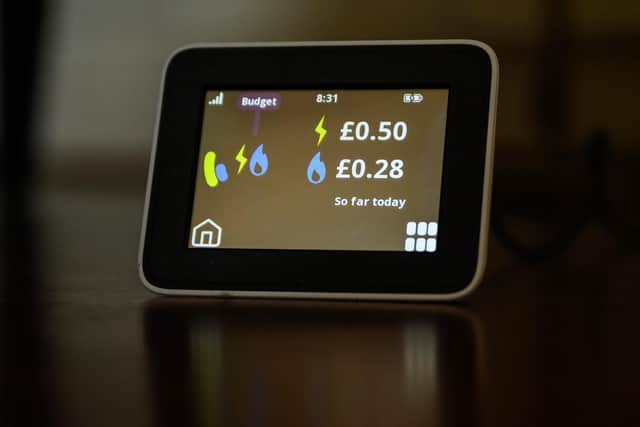Cost of living crisis: Why have EDF energy prices only risen by 4% in France compared to 54% in the UK, what is the Ofgem price cap, why has the cap gone up, will submitting a meter reading reduce my bills?
and live on Freeview channel 276
One of the biggest concern for many is the rise in energy bills.
Last week, people were asked to submit meter readings in an effort to curb rising costs.
Advertisement
Hide AdAdvertisement
Hide AdOfgem increased the cap last week, and companies such as EDF are increasing their tariffs.


Some countries are managing to protect customers, with EDF prices only rising by four per cent in France, compared to 54 per cent in the UK.
Here is why that is the case:
Why are EDF price rises lower in France than the UK?
The firm was forced to take a £7bn financial hit across the channel to keep prices low.
Électricité de France is largely owned by the French government, but is one of the largest energy suppliers in the UK.
Advertisement
Hide AdAdvertisement
Hide AdUK regional electricity companies were privatised in 1990, with British Gas no longer being state owned in 1986.
With the Ofgem price cap rise of £693, many energy companies have risen their bills to the maximum allowed.
Although in France, the government has stepped in and only allowed EDF to hike their prices by four per cent, in an effort to clamp down on soaring bills.
French president Emmanuel Macron also cut tax on electricity and has pledged to subsidise petrol by 15c a litre.
He faces elections next month.
What is the Ofgem price cap?
Advertisement
Hide AdAdvertisement
Hide AdThe aim of the independent British energy regulator is to ‘protect consumers now and in the future by working to deliver a greener, fairer energy system’, according to the Ofgem website.
Its price cap is a measure to limit the level of bills.
On February 3, it was announced the cap would ascend and come into place on April 1.
The rise affected approximately 22 million people, with those on default tariffs, paying a direct debit, increasing from £1,277 to £1,970 per year.
Customers on prepayment plans face an increase of £708, from £1,309 to £2,017.
Advertisement
Hide AdAdvertisement
Hide AdIt is updated twice a year, and tracks wholesale energy and other costs to determine the figure.
Why has the price cap gone up?
Ofgem said a record rise in the wholesale price of gas contributed to the higher cap.
These fees quadrupled in the last year.
Experts claim the war between Russia and Ukraine has kept these figures high, as well as increases in post-pandemic energy usage.
Many UK energy suppliers, such as Zog Energy and Together Energy Retail Ltd, have gone bust as a result.
Advertisement
Hide AdAdvertisement
Hide AdAt the time of the announced cap increase, Jonathan Brearley, chief executive of Ofgem, said: ‘We know this rise will be extremely worrying for many people, especially those who are struggling to make ends meet, and Ofgem will ensure energy companies support their customers in any way they can.
‘The energy market has faced a huge challenge due to the unprecedented increase in global gas prices, a once in a 30-year event, and Ofgem’s role as energy regulator is to ensure that, under the price cap, energy companies can only charge a fair price based on the true cost of supplying electricity and gas.’
Will submitting a meter reading help reduce my energy bills?
Many personal finance experts, including Martin Lewis, pleaded with customers to submit meter readings last week.
Taking this figure shows an energy company how much gas and electricity you are actually using, rather than an estimated figure.
Advertisement
Hide AdAdvertisement
Hide AdMeter readings can still be submitted, and suppliers may take this into consideration when changing how much a customer is charged.
Martin Lewis advised people to send in the readings as soon as they could to avoid mis-estimates.
